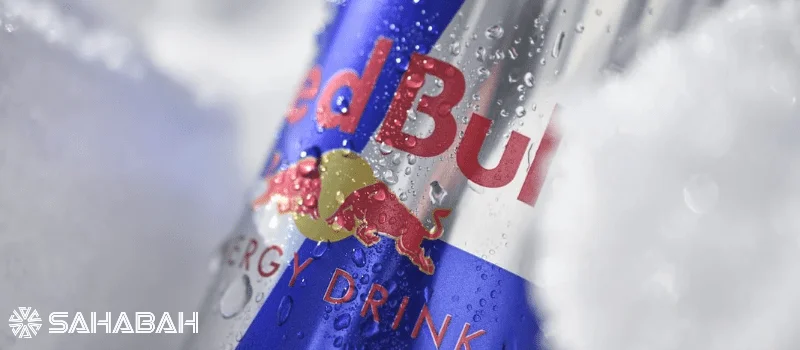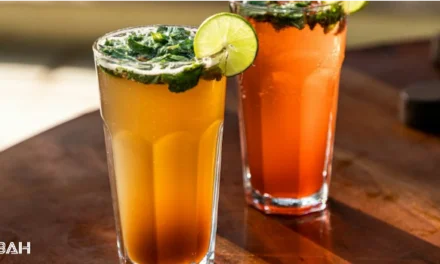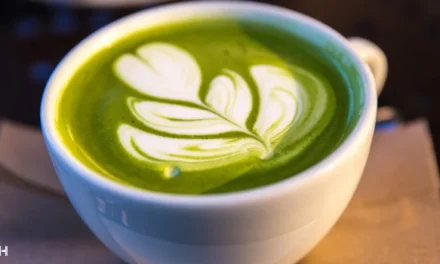As a muslim consumer who values transparency and wants to make informed choices, I was curious to delve into the halal status of Red Bull. In this article, I will uncover the truth behind Red Bull’s halal certification, providing you with the knowledge you need to confidently enjoy this energy drink.
Red Bull Under the Microscope
Red Bull is an energy drink that was created in 1987 by Dietrich Mateschitz in Austria. Since then, it has become one of the most popular energy drinks worldwide. Some key facts about Red Bull:
- Sold in over 171 countries
- Approximately 7.5 billion cans sold per year
- Comes in different flavors like original, sugar-free, tropical, orange edition
| Year | Number of Cans Sold |
|---|---|
| 2021 | 7.5 billion |
| 2020 | 7.1 billion |
| 2019 | 6.8 billion |
The question of whether Red Bull is halal or not has been debated extensively amongst Muslim communities.
Red Bull’s ingredients have been subject to speculation regarding its permissibility according to Islamic law.
This article will analyze the ingredients and production process of Red Bull to determine if it is permissible for consumption by Muslims based on halal dietary restrictions.
Halal Dietary Restrictions
Halal is an Arabic word that means permissible or lawful under Islamic law. There are some key dietary restrictions that Muslims must follow for food and drinks to be considered halal:
-
No pork or pork by-products – Pork is strictly prohibited according to Islamic law as stated in the Quran:
Forbidden to you (for food) are: dead meat, blood, the flesh of swine
-
No alcohol or intoxicants – Alcohol is forbidden as an intoxicant according to verses in the Quran:
Intoxicants, gambling, adultry, and divination by arrows are repugnant acts performed by Satan. You should avoid them so you may prosper.
-
Meat must be slaughtered in the Islamic manner – Requires pronouncing the name of God while slaughtering and proper draining of blood from the carcass.
-
No carnivorous animals – Animals that eat other animals like lions and bears are forbidden.
-
No land animals without external ears – Camels, rabbits, and rodents are allowed but reptiles are not.
For food and drinks to be certified halal, they must comply with these restrictions during production and processing.
Ingredients in Red Bull
The key ingredients in Red Bull’s formula are:
-
Carbonated water – The base ingredient. Should be halal compliant.
-
Sucrose and glucose – Sugars derived from beets or sugarcane. Halal approved.
-
Caffeine – Typically produced synthetically. No alcohol or animal products.
-
Taurine – An amino acid that occurs naturally in the human body. Manufactured version likely halal.
-
B vitamins – Such as niacin, pantothenic acid, B6, and B12. Non-animal sources.
-
Flavors and colors – exact sources not disclosed by company. Potential issue according to some scholars:
The “flavour” content is ambiguous and may contain non-halal elements
Based on the listed ingredients, Red Bull appears to comply with halal restrictions. However, the vague flavorings and lack of transparency have raised some concerns among Islamic scholars regarding full halal compliance.
Red Bull Energy Drink Production
The production process of Red Bull does not appear to involve any non-halal ingredients:
- Red Bull is produced in facilities in Austria and Switzerland.
- No evidence that pork, alcohol, or other forbidden ingredients are used in production.
-
However, the facilities do not seem to have halal certification:
There is no halal certification from any Islamic Body on Red Bull energy drink.
-
This makes it difficult to fully verify the halal compliance of the production process.
Some additional concerns include:
- Use of gelatin as an ingredient in some markets – gelatin sources can be non-halal.
- Caffeine extracted from coffee beans using alcohol in some cases.
Overall, the main Red Bull formula and ingredients seem to follow Islamic dietary laws. But the lack of clarity about the exact production process and flavors has led some scholars to doubt its permissibility.
Scholarly Rulings
Islamic scholars have differing views on the permissibility of Red Bull according to halal standards:
Permitted
-
Sheikh Musa Furber states it is halal since no solid proof of impermissible ingredients:
There is no clear evidence showing that Red Bull is not halal.
-
Mufti Faraz Adam notes no apparent problem with ingredients list.
Prohibited
-
Justice Mufti Muhammad Taqi Usmani prohibited due to doubt over ingredients:
Owing to the element of doubt, it will not be permissible to consume Red Bull.
-
Mufti Zubair Dudha discouraged consumption citing unknown artificial stimulants.
Permissible with Caution
-
Muhammad Abu Zahra recommends avoiding it to be cautious but does not explicitly prohibit it.
-
Abu Eesa Niamutullah states permissible if does not lead to intoxication.
The main disagreement stems from the ambiguity around some ingredients and the lack of halal certification of facilities. Scholars advocating prohibition take the most cautious view when in doubt.
Is Red Bull Halal – FAQ
Red Bull is considered halal.
Is Red Bull a halal drink?
Yes, Red Bull is a halal drink as it is non-alcoholic and does not contain any animal-derived ingredients.
Does Red Bull contain taurine?
Yes, Red Bull contains taurine. However, the taurine in Red Bull is synthetically produced by pharmaceutical companies and does not come from animal products.
What is the halal status of Red Bull?
The halal status of Red Bull is considered halal, as it does not contain any haram ingredients and is suitable for consumption according to Islamic law.
Does Red Bull have a halal certification?
Red Bull does not have a specific halal certification, but it is generally accepted as halal by Islamic authorities due to its non-alcoholic nature and absence of any haram components.
Is Red Bull suitable for vegetarians?
Yes, Red Bull is suitable for vegetarians because it does not contain any animal-derived ingredients.
Can Muslims drink Red Bull?
Yes, Muslims are allowed to drink Red Bull as it is considered halal and complies with Islamic dietary guidelines.
What are the ingredients in Red Bull?
The ingredients in Red Bull include water, sugar, taurine, caffeine, B-vitamins, and various other additives. These ingredients are synthetically produced and do not come from animal sources.
Is Red Bull halal or haram?
Red Bull is halal and not haram, as it does not contain any haram ingredients, is non-alcoholic, and is suitable for consumption according to Islamic dietary guidelines.
Is the energy drink Red Bull considered halal?
Yes, the energy drink Red Bull is considered halal since it is non-alcoholic and does not contain any haram ingredients.
Conclusion
In summary, there is no consensus among Islamic scholars regarding the halal status of Red Bull for the following reasons:
-
The main ingredients appear to comply with halal dietary restrictions. No alcohol or pork products are used.
-
However, the vague “flavorings” and lack of transparency over production raise doubts.
-
Facilities are not halal certified and may use questionable manufacturing processes in some markets.
-
Most prohibiting scholars lean cautious in cases of ambiguity around ingredients.
-
Those permitting don’t find evidence of impermissible ingredients but caution is still advised.
There is no definitive evidence to declare Red Bull as absolutely haram or impermissible. However, the element of doubt makes it recommended for Muslims to avoid consuming Red Bull, or at minimum exercise caution, until further verifications can be made.
When uncertainty remains over an ingredient or product’s halal status, the most prudent course of action for observant Muslims is to avoid it entirely or seek alternatives, aligning with Quranic principles:
Eat from what Allah has provided you as good and lawful, and be conscious of Allah.





